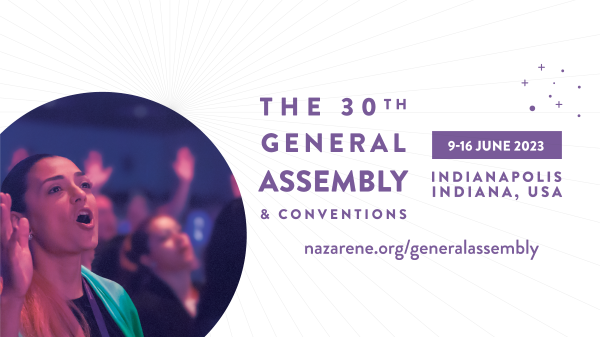Marriage is Easy

. . . we just make it extremely difficult when approached with our own individual agendas. I’m writing this on December 18, 2024. Today marks 25 years since my wife, Amy and I said, “I do.” In reality, for her it was probably more like, “He’ll do.” Whatever her motivation, I’m humbled that she chose me. What follows is not written from a posture of arrogance. It might feel like that as you read. We don’t have a perfect marriage. What we have is a marriage that works. It’s a healthy marriage marked with intended humility, patience, sacrifice, intentionality, and of course always a little bit of mess!
“Wait,” you might be thinking, “you haven’t mentioned love.”
In my over 20 years of pastoring, I’ve found myself invited into more struggling marriages than I can count. More than simply not struggling, they were marked by hurt, selfishness, arrogance, chaos, and an extreme lack of hope. Some of them did not make it. Some of them did. What follows are some observable principals that, over and over again, were characteristic of intentional changes in posture, which led to struggling marriages that went from gasping for air, to surviving, and then to thriving.
You might find yourself in a marriage that feels more like you’re standing on the tilting deck of the sinking Titanic than it does a hammock on the beach.
Or maybe your marriage is “fine,” but you didn’t get to where you’re at for it to only be “fine.” You want a marriage that is thriving.
Or perhaps you are very close—maybe even related—to someone else whose marriage is struggling.
Whatever your situation, can I tell you that there is hope? It won’t be easy, but it will be worth it. What follows will not be comfortable. It won’t be neat and tidy. You’ll read some parts and disagree. You’ll read some and be offended. Don’t stop reading. Hope requires a significant level of faith, even faith that perhaps God could change the current situation if we’d just ask him to do so and then take responsibility for our part.
Read the following reflections knowing they aren’t the end-all. They come from a place of deep care and concern, but also from a deep well of experience that has learned years of chaos, pain, and anxiety don’t get fixed—they get delt with. It’s time to fight for your marriage, and fighting isn’t pretty. It isn’t comfortable. I honestly don’t care about your comfort, and I don’t believe God does either. God desires commitment to His ways over your comfort. Trust me, it’s worth it.
These are in no particular order and they certainly don’t encompass all that is needed for a healthy, thriving marriage. Here we go.
Too many couples invest in their wedding, but not in their marriage.
I’ve officiated and attended weddings where thousands of dollars have been spent on a ceremony and after-party, which lasted a combined 8 hours or less. Months and months are spent painstakingly planning every detail and stressing over the desire to “have everything right.” Yet, not much time—if any—is spent on investing in the actual marriage that is intended to last the rest of our lives. Husbands and wives, it’s time to invest in our marriages. It takes time. It takes getting help sometimes. It sometimes requires money. It always requires sacrificing our own agenda for the sake of peace, health, and flourishing. How will you invest in your marriage
Too many marriages are sabotaged by outside influences.
If you aren’t the husband or the wife, stay out of it. If you are the husband or wife, quit inviting others into the chaos simply to get others on your side. You justify it as “I’m just venting” or “I talk to my mom about everything.” Ephesians 5:31 reminds us that, “a man will leave his father and mother and be united with his wife, and the two will become one flesh” (NIV). That “leaving” is not just a physical leaving of the house. To “leave” is to come out from under the influence of your parents and move into a realm where unification with your spouse is now your top agenda item, after your relationship with Christ. If you haven’t truly tried to invest in communication with your spouse before seeking “help” from your family or friends, then you are only seeking validation for yourself. Your best first step in seeking outside help is to find a neutral party whom you trust to give you non-partial wisdom and support. What step will you take to find a non-partial individual to help?
If you are a parent whose child’s marriage is on the rocks, you likely don’t possess the neutrality necessary to truly help your child. Remember, your child is now “one” with another through marriage. Do you truly believe that, or does that only apply when things are going your child’s way or when your child marries the person you think they should have married? I’m not advocating that you not support your child, but be careful that the support you are offering is to help them find their responsibility in the situation and not just to affirm their biased agenda. If you truly want to stop progress then go ahead and affirm a faulty agenda. If they are truly “one flesh” then you will do everything you can to support the marriage instead of creating more chaos. How will you encourage your child or your friend to take responsibility instead of affirming their agenda?
It’s not about YOUR needs, it’s about OUR needs.
I hear way too often from one spouse or the other that “I’m just not happy,” or “my needs aren’t being met.” This is a real thing. We each should be fulfilled in our marriage. However, our priority in marriage should be to meet the needs of our spouse BEFORE focusing on our own needs. This goes against all common sense and against all culturally-influenced ways of thinking. But the way of Jesus is to put others’ needs first. Now, I’m certainly not advocating for anyone to be a doormat. There are situations where narcissism, selfishness, and blatant sin will sabotage nearly any hope of restoration. This is a sad reality, but human free will can have a disastrous outcome.
I’ve seen multiple marriages healed because one spouse said, “enough is enough” when it comes to ending what Emmerson Eggerichs calls the “Crazy Cycle.” In his book, Love and Respect (2004), Eggerichs details the reality of how pride often weasels its way into our relationships: One person needs something from the other (love), but when they don’t get it they in turn don’t give the other person what they need (respect). That other person doesn’t get respect, so they in turn don’t show love. And the crazy cycle turns and turns. At some point someone has to swallow their pride and say, “enough is enough!” Remember, a healthy marriage—or even just an argument for that matter—should never be about one or the other winning. When winning is the goal, then the relationship has already lost.
The opposite is true of that crazy cycle. If one person will just swallow their pride and start meeting the needs of their spouse, the other spouse will often naturally want to also meet the deepest needs of the other. Now that’s a cycle worth repeating! It will likely require much patience, but the hope experienced from simply changing behavioral habits has the potential to be just the fuel needed to see exponential progress. How are you putting your spouse’s needs ahead of your own?
Love is a choice.
The romantics don’t like to hear this, but there is no magnetic field that magically brings two souls together for unending marital bliss. There is also no relationship in the history of the world where both individuals “felt” constant, unending love. We each have a choice in who we love and how we choose to love them. Now, I do believe God brings couples together. I also believe in free will and the inability of human beings to always make the right choice—even in a spouse. However, this does not in any way absolve us from the responsibility of keeping that commitment to permanence we made before God and before others. There will be days when you don’t “feel” love for your spouse. If you truly read scripture in its broadest, overarching context, you will see that love was never intended to be a feeling, and attraction has very little to do with love, other than creating an awareness of another whom we might choose to love at some point. In fact, love is always a decision to act. It’s in response to God’s love for us and in response to His call to love Him and others. The agape love God calls us to is defined as “a decision of the will to do what’s best for the other person.” This is the type of love God calls us to over and over in Scripture, and nothing about the marriage relationship changes that. The best choices aren’t the ones that feel the best, but the ones that have the right outcome. How are you choosing to love your spouse?
My marriage isn’t perfect. In fact, I’ve failed mightily at many of the very things I mention above. If you are having marriage struggles you are not alone, you are not weak, and your marriage is NOT too far gone. Your marriage is worth fighting for. Your marriage is worth investing in. What will you do from here? If I can be of any help I would be humbled by the opportunity to talk with you and see how God wants to heal your marriage. Don’t wait. It’s not going to get better by just hoping things change—you take that step. Your marriage is worth it. You are worth it.








Recent Comments